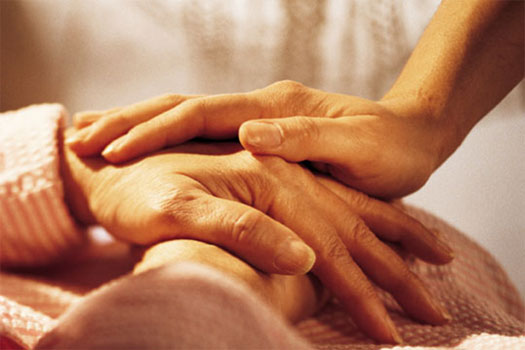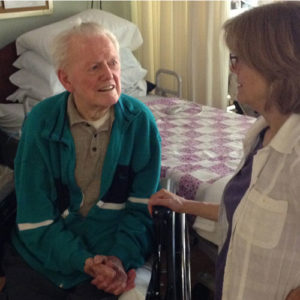In my last post, I wrote about the 5 stages of grief: Denial, Anger, Bargaining, Depression, and Acceptance. If you’ve been on the receiving end of difficult news or supported family members, friends, or acquaintances as they process troubling circumstances, I imagine that you’ve had some experience with the process. It’s hard to know what to do or say to ease another person’s suffering.
For those of us who desire to be a comforting presence for others, Dr. Robert Buchman offers sage advice in his book, I Don’t Know What To Say. In short, simply providing space for letting your companion talk about his or her distress can help relieve it. You don’t have to have any answers or solutions. Being an attentive listener can be a healing balm.
A few practical tips for conversation:
- Choose the right time and place. Privacy fosters openness as does freedom to allow the conversation to take its time. Be willing and able to give this time your full attention.
- Provide an invitation to converse. Honor your friend’s request if he or she is not up to it. Be open and attentive if the time is right. Encourage disclosure with your body language (e.g., open stance, warm facial expression, eye contact) and your words (“Yes,” “I see”).
- Be a stellar listener. Follow the path they set. Don’t think about what you might say next; don’t interrupt. As appropriate, repeat what you heard and ask clarifying questions. “Can you help me understand what you mean?” “Could you describe how that feels?” Expect repetition.
- Avoid the temptation to provide answers or solutions, even when asked a direct question. Use that inquiry as an opportunity to help your friend think more deeply about the matter. As a case in point, folks regularly asked me if I thought there was life after death when I served as a hospital chaplain. The conversations were always much more interesting when I asked patients what they thought about it.
- Don’t rush to fill silence (even if it makes you feel uncomfortable). Heavy emotional content takes time to process, and the words to capture the feelings may come slowly. Just be present and loving.
- Encourage reminiscence. Memories can be a source of comfort as a way to find meaning in one’s life.
- Respond to humor. It provides relief from intense feelings.
- Be aware of “your stuff.” Difficult conversations can trigger our own reactivity. It may bring up our own pain, discomfort, fear, uncertainty, doubt, anger, etc. We may not be able to control our feelings, but we can notice them as they arise so that they don’t overtake us.
At the end of the day, it’s not about what you do or say; it’s about how well you connect. The more you try to understand your friend’s feelings, the more support you are giving. To that end, try to stay close enough that you provide an empathic response while keeping sufficient distance to avoid losing yourself in the heat of emotion.


